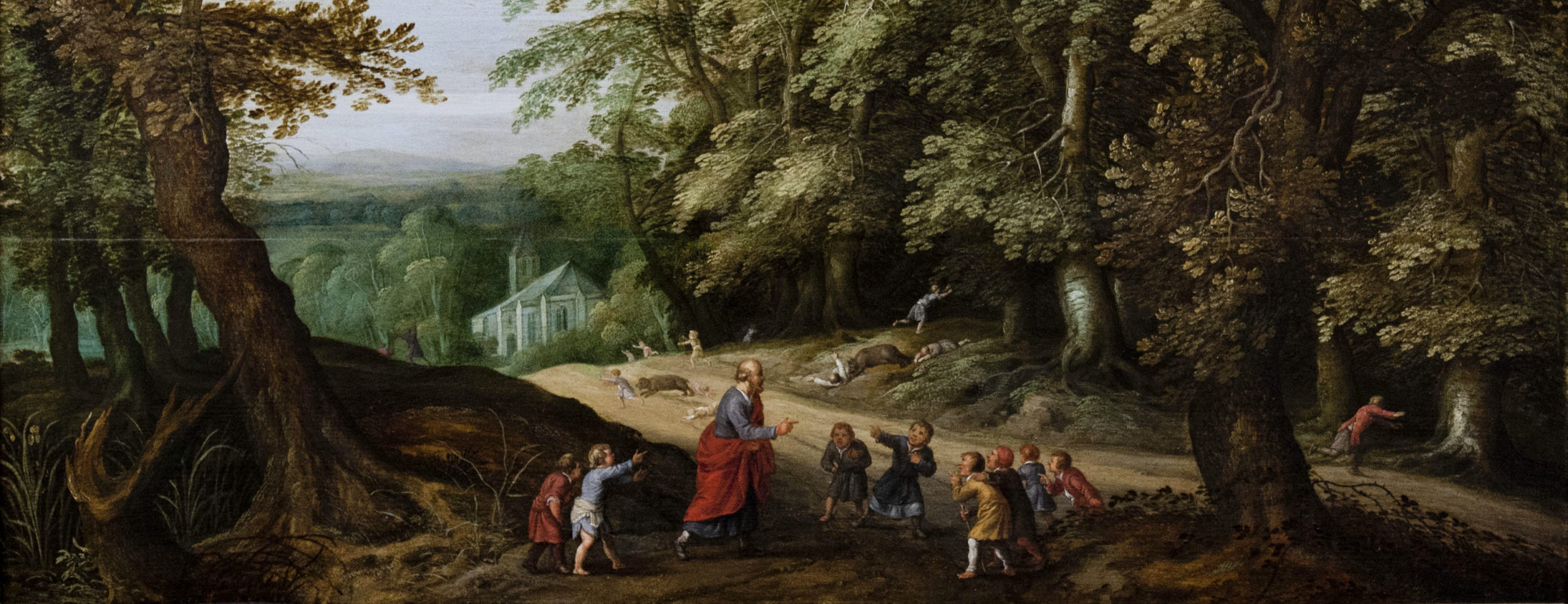I love reading about the history of our people in the Old Testament. The events described therein are often so detailed that I feel myself literally being transported back in time… It’s almost like I am there in person witnessing the ups and downs experienced by each character, the sights and sounds of the battlefield and the scents of a blessed land flowing with milk and honey.
But I must admit that some of the accounts contained within this ancient book do seem a bit odd to our 21st century minds and as a result these portions of scripture often get delegated to the ‘too hard basket’ never to be looked at again. However, I have found that by digging a bit deeper into these seemingly odd events, unexpected treasures are unearthed which are strangely relevant to our modern world.
So today, I like to take you with me on a journey of discovery as we delve deep into the book of Kings and encounter a very strange event in the life of the prophet Elisha.
We take up the narrative in 2 Kings 2, where the account of Elijah being taken into heaven by a whirlwind is recorded. Elisha was an eyewitness to this event and it had such a profound effect on him that he took up the mantle of his predecessor, and having been endowed with a double portion of the spirit, he crossed over the Jordan River, healed the unwholesome waters of Jericho with salt and then continued on his journey unto Bethel.
In verses 23-24 we read;
‘Elisha went up from Jericho to Bethel, and while he was going up on the way, some small boys came out of the city and jeered at him, saying, “Go up, you bald head! Go up, you bald head!” And he turned around, and when he saw them, he cursed them in the name of the LORD. And two she-bears came out of the woods and tore forty-two of the boys.’
2 Kings 2:23-24
Now if that is not a strange event, I don’t know what is. I mean there are small children who, I must admit, are being disrespectful… but Elisha seems to overreact by cursing them which causes two bears to appear from out of no where to maul these children…
My first reaction on reading this account was probably not dissimilar to what you are now feeling… I thought it not only harsh, but also gruesome and just plain horrible.
However, as I settled my tumbling emotions and delved deeper I was surprised by the treasure that was revealed.
Who Were the Children From Bethel?
The word translated ‘small boys’ in our text is the Hebrew נְעָרִים קְטַנִּים naarim qatanim. The word boys, נְעָרִים naarim can refer to children, but in some instances is also used to describe young men. Qualifying this noun with the adjective קְטַנִּים qatanim meaning small, led most translators to the conclusion that we are talking here of small children. However, the word קְטַנִּים qatanim does also hold the nuance of something being insignificant or weak. And by taking this into consideration, another plausible translation of the construction נְעָרִים קְטַנִּים naarim qatanim would be ‘immature young men’, and as we will see this fits better within the context of the narrative.
These young men that mocked Elisha came from Bethel. Bethel was quite an important city in the Northern Kingdom of Israel. The name Bethel means ‘House of El’ and it should have been a place that lived up to its name, but there was great wickedness afoot in that city. Many years before Elisha’s ministry, King Jeroboam had placed a Golden Calf at Bethel claiming that this represented the god that had brought the Israelites out of Egypt. The people worshipped and sacrificed to this calf and it was a great abomination in the land.
Unfortunately this Golden Calf worship was still occurring in Elisha’s day, indicating that worship in Bethel was still very much corrupted.
It would therefore seem quite plausible that these young men were active worshippers of the Golden Calf. Their chant of ‘Go up, Go up’ implies that they were aware of Elijah’s ascension in the whirlwind and by mocking Elisha in this way they were in reality challenging Elisha’s status as a prophet.
They were in fact issuing a challenge – setting the god represented by the Golden Calf up against the One True God. This calculated action would be one you would expect from insignificant, weak or immature young men, not little boys.
Elisha’s Response to the Challenge.
Elisha’s response to these young men was scathing. He pronounced a curse on them in the name of our nation’s covenant keeping God, Yahweh.
The word translated ‘curse’ here is the Hebrew קָלַל qalal meaning ‘to make light of’. Elisha placed no value on the words of the young men and he made that perfectly clear to them.
As a result of this, two bears came out of the woods. This seems very logical, as we know that this is where bears commonly dwell. However, let’s take a closer look at the Hebrew word יַעַר yaar that has been translated as woods in this verse. This word does indeed mean a wood, forest or thicket… but surprisingly it can also be translated as honeycomb.
As well as dwelling in the woods, we know that bears love honey which they of course find in the hollows of trees present in the woods. In Scripture, honeycomb or honey, is representative of the Word of God and Enlightenment.
So we can say that the bears coming out of the woods were filled and fuelled by the Word.
Did the Bears Maul the young Men?
Bears are known for their sharp claws and ferocious temperament. So the common interpretation of what the bears did to these young men is that they literally mauled them to death… however, is that really what happened here or is there another explanation?
The account, as recorded in the Scripture, says that the bears tore the young men.
The word translated ‘tore’ in this account is the Hebrew בָּקַע baqa. This word means to cleave, break open or break through.
It is interesting to note that this very same word, בָּקַע baqa is used in Exodus 14:21 where Yahweh divided (בָּקַע) the waters of the Red Sea.
‘Then Moses stretched out his hand over the sea… and the waters were divided (בָּקַע).’
Exodus 14:21
We all know that the dividing of the Red Sea was a very positive event in the history of our nation. By dividing the waters of the Red Sea a path of dry land was created allowing the children of Israel to literally pass through the chaos into Life and new opportunities. Being delivered from slavery Israel could now worship their God.
We can apply this concept of dividing to our story. We could say that the bears did not maul the young men, but rather divided a way through them, opening a path for Elisha to pass through as he commenced his new life and ministry.
The Scripture states that there were specifically 42 young men. This small detail should not be overlooked as it has great significance. In Scripture 42 is the number of the Antichrist, which is nothing other than man acting in opposition to God.
When the Israelites were slaves in Egypt, it was Pharaoh who refused to let the people go in order to prevent them from worshipping God. Whilst in the account of Elisha it were the worshippers of the Golden Calf who were endeavouring to block his progress for the Kingdom.
In both cases a supernatural deliverance was required and the Lord provided that pathway by breaking open a way through the chaos so that they could pass through and worship Him and manifest His kingdom.
Application for today
So how is all of this relevant for our day?
It may come as a surprise to many but as a nation we still worship the Golden Calf. Its statue can be found outside the stock exchange in both New York and Amsterdam.
The charging bull represents aggressive financial optimism and prosperity. Money has become our nation’s god. Each night we receive details on its health through the stock market reports.
The charging bull statues attract many visitors. Disturbingly leaders of Christian churches have even gathered there to lay hands on the bull and to pray in periods of national financial distress in order to ask their god to bring the financial markets back from the brink.
It is interesting to note that within the financial world there are also Bears present. Whilst the Bull represents a rising market, the Bears represent a falling market and for this reason a bear market is not one that is desired. A bear market reveals the true folly of the man who places his trust in the modern day Golden Calf – the false god that our nation worships. As the bear tears through the financial market it opens up a new path, one which did not exist before.
The imagery of Bears and Bulls is highly visible in our financial markets, yet the principles they represent apply to other areas of life too.
The Golden Calf represents a way of thinking and acting in a way that opposes our true God and His Kingdom. However the Word of God, represented by the Bears, cuts through this thinking and presents a new path on which to travel. May we humbly ask our God for eyes to see, and the courage strength and wisdom to enter these new paths opening before us – so we can pass through the chaos to worship Him fully in order to manifest the Kingdom.



